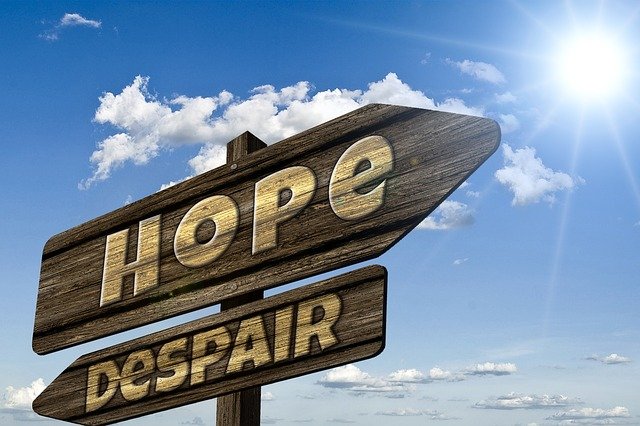
Whether or not we are aware, expectations underpin much of our lives. We expect particular things to happen, goals to be reached, tomorrow to be better, others to do what they say they will, and on it goes. What’s fascinating about expectations is that more often than not they run in the background, like an invisible operating program. We don’t usually even give voice to them, until they have been violated or disappointed, then we say things like, “I guess I just need to manage my expectations,” or “This is why I know better than to expect anything.” When that happens, the operating system that was previously running undetected now feels as if it’s the only thing we can see.
If we are being honest, expectations are a kind of hope; they keep us going, keep us trying, keep us working toward something… more. Conversely, they can also be rationalizations for NOT hoping… “Things usually don’t work out for me, so why even bother?” On their own, they are neither good nor bad, they just are. But because we don’t always realize they are there, they can take us by surprise, again and again.
So, what can be done to make our expectations less of a blind spot to ourselves and others?
First, we need to become more aware of them. An easy place to start is when there is a “gap.”
When we enter a new experience, we tend to think we will be able to operate at a high level of competence. However, competence always happens on a continuum. When Kerri trains on coaching, she reminds the learners that people must “first make contact with the ball.” We can’t expect home runs the first time we go up to bat. Yet, we do expect we will or that they will. This gap in expectation versus performance is a good reminder that our beliefs are inaccurate. This is the first step to allowing us to realize they are there and then work to adjust them.
Next, we need to be realistic about our expectations.
A couple of weeks ago, my favorite podcaster (and “Lazy Genius”) Kendra Adachi said, “We must be willing to match our expectations to the level of effort we are willing to give.” This has been an excellent filter for me, allowing me to be honest regarding whether I care enough about potential goals to even try to achieve them. This clever statement applies to yourself and to others. If they aren’t willing to give the effort you expect, you might both end up being disappointed.
Finally, we must share our expectations with others.
When we coach and train managers, we teach them to make their expectations clear. We know that if they aren’t getting what they want from their employees, they likely haven’t done a very good job of establishing what they want to have happen. We teach them to say very directly, “My expectations are…” In doing so, they can make unseen things seen and let others know exactly what results they expect. It’s a great kindness to let people know what you want from them. When you do so, they have a much higher likelihood of being successful. This also reduces the chance of conflict. As our beloved Lazy Genuis once said, “When you don’t understand someone’s expectations, you can’t make sense of their disappointments.”
Ultimately, an expectation is like air, crucial, but not something we think much about until it becomes compromised. But with the right mindset and skills to communicate them, expectations can provide grounding and when the time is right, allow us all to soar.